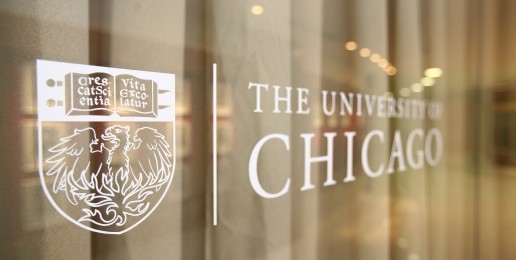
Another glorious Easter has come and gone, a day during which Christians celebrate the resurrection of Christ with friends and family. Try as they might, Universityof Chicago Law Professor Geoffrey Stone and the editorial board of the Chicago Tribune couldn’t dampen the spirits of those who know that the work of Christ on the Cross is finished.
But Stone’s op-ed piece and the decision of the Trib’s editorial board call for a response.
Stone’s op-ed titled “The crazy imaginings of the Texas Board of Education” seeks to warn an unsuspecting America that there is “a coterie of Christian evangelicals who are attempting to infiltrate our educational system to brainwash our youth.” His fretful missive was prompted by the Texas Board of Education’s efforts to restore balance to the teaching of American history after decades of successful “progressive” efforts to erase from history and the minds of children the place of faith in the founding of America.
Regarding the Trib’s calculated decision to publish this gigantic op-ed piece — I mean physically gigantic — I can only ask: Really — on Easter Sunday? Your coterie of editors had a confab to decide when to publish an op-ed piece that they had to know would offend conservative Christians and decided, yes, Easter Sunday is the best day to publish it.
(Commentary editor (Marcia Lythcott) contacted me the day before my commentary was published in the Trib and explained that the decision to publish Geoffrey Stone’s op-ed on Easter was hers alone, and she asked me if I wanted to change my sentence about the decision-making process. I revised it and sent her this:
“Commentary editor Marcia Lythcott ruminated about when to publish an op-ed piece that she had to know would offend conservative Christians and decided, yes, Easter Sunday is the best day to publish it.”
When my commentary appeared in the Tribune, this sentence was omitted.)
If I weren’t compelled to subscribe to the Tribune for professional reasons, this would be the camel-back-breaking event for me.
And now for Stone’s piece, yet another in his steady stream of irritating op-eds.* For those who may be unfamiliar with Stone, he is the law professor who loves to promote his daughter’s lesbian inclinations and thinks all of America should do likewise, and who thinks America is a better place with partial-birth abortion widely available.
It has become so commonplace to read denigrating comments about or see mocking portrayals of Christian evangelicals that the offensiveness of such comments and images barely registers on our tolerance meters. Imagine hearing these words come from the mouth of a professor at a leading American university on Passover: “a coterie of Reformed Jews are attempting to infiltrate our educational system to brainwash our youth.” Or imagine these words appearing in the Trib on Eid al-Fitr, the Islamic celebration that concludes Ramadan: “a coterie of Muslims are attempting to infiltrate our educational system to brainwash our youth.” Stone’s words almost sound bigoted and intolerant. When you look around at our leftist-dominated educational system, his words are laughable.
Stone believes that “most of the Framers did not put much stock in traditional Christianity. As broad-minded intellectuals and skeptics, they viewed much of religious doctrine as divisive and irrational, and they challenged, publicly and privately, the dogmas of conventional Christianity.” Stone could be accused of cherry-picking his quotes to bolster his thesis that America is not a nation founded on Judeo-Christian principles. Here are the quotes Stone chose:
- Benjamin Franklin, for example, dismissed much of Christian doctrine as “unintelligible.” Franklin believed in a Creator, but not in the Christian God. He dismissed Christian revelation and described himself as “a real doubter in many points of our religious doctrine.”
- Jefferson admired Jesus as a moral philosopher, but he believed Jesus’ teachings had been “distorted out of all recognition.” He condemned the details of Christian dogma as “dross,” “abracadabra,” “insanity,” “a hocus-pocus phantasm,” and a “deliria of crazy imaginations.” Jefferson expressed his hope to John Adams that “the human mind will someday get back to the freedom it enjoyed 2,000 years ago.”
- [John] Adams rejected the rigid dogmas he had inherited from his Puritan forebears. The Creator, he declared, “has given us Reason, to find out the Truth, and the real Design and true End of our Existence.”Adams rejected all religious doctrines “that could not be verified independently by human reason.” He wrote Jefferson that his religion could be “contained in four short Words, ‘Be just and good.'”
Stone evidently forgot these words, which might have been helpful in maintaining the accuracy that Stone seems to desire:
- The fundamental truths reported in the four gospels as from the lips of Jesus Christ…are settled and fixed moral precepts with me. (Abraham Lincoln)
- Providence has given to our people the choice of their rulers, and it is the duty, as well as the privilege and interest of our Christian Nation, to select and prefer Christians for their rulers. (John Jay, Co-author of the Federalist Papers; First Chief Justice of the U.S. Supreme Court).
- I have lived, Sir, a long time, and the longer I live, the more convincing proof I see of this truth that God Governs in the affairs of men. And if a sparrow cannot fall to the ground without his notice, is it probable that an empire can rise without his aid? We have been assured, Sir, in the sacred writings, that “except the Lord build the House they labour in vain that build it.” I firmly believe this; and I also believe that without his concurring aid we shall succeed in this political building no better, than the Builders of Babel. (Benjamin Franklin)
- Is it not that in the chain of human events, the birthday of the nation is indissolubly linked with the birthday of the Savior? That it forms a leading event in the progress of the gospel dispensation? Is it not that the Declaration of Independence first organized the social compact on the foundation of the Redeemer’s mission upon the earth? That it laid the cornerstone of human government upon the first precepts of Christianity? (John QuincyAdams)
It’s interesting that Stone in all his paranoid handwringing about the “infiltration” of education by a coterie — or did he mean “cabal” — of Christian evangelicals is apparently unconcerned about the use of Howard Zinn’s The People’s History of the United States to teach American history — a book that is roundly criticized for both its bias and its antipathy for America.
Dr. Gary Scott Smith, who chairs the history department at Grove City College and wrote the book Faith and the Presidency: From George Washington to George W. Bush (Oxford University Press, 2009) offers a slightly different view than Stone — who is not a historian. Dr. Smith explains that the truth about the religious views of America’s founders falls somewhere in between the view that “most of the founders were devout Christians who sought to establish a Christian nation,” and the view that “most founders were deists who wanted strict separation of church and state.”
Dr. Smith writes the following:
Two recent books edited by Daniel Dreisbach, Jeffry Morrison, and Mark David Hall…explained the religious backgrounds, convictions, and contributions of numerous founders. They show that many who played leading roles in the nation’s Declaration of Independence, the Continental Congress, and the devising and ratification of the Constitution were devout Christians, as evident in their church attendance, commitment to prayer and Bible reading, belief in God’s direction of earthly affairs, and conduct….
A third book, which is currently being written, will explain how the faith of Congregationalist John Hancock, Quaker John Dickinson, Presbyterian Elias Boudinot, and Episcopalian Charles Pinckney, and others helped shape their political views, policies, and practice. Abigail Adams and Catholics Charles Carroll, Daniel Carroll, and John Carroll also were dedicated Christians. Moreover, Jay, Boudinot, Pinckney, and numerous other founders served as officers of the American Bible Society.
Even many of those often labeled as deists — Washington, Franklin, Adams, Jefferson, Madison, and Alexander Hamilton — do not fit the standard definition of deism, which asserts that after creating the world, God has had no more involvement with it. Deism views God as a transcendent first cause who is not immanent, triune, fully personal, or sovereign over human affairs. All of these founders, however, repeatedly discussed God’s providence and frequently affirmed the value of prayer. Their conviction that God intervened in human affairs and directed history has led some scholars to call these founders “warm” or “enlightened” deists, but these terms seem like oxymorons. A better label for their position is theistic rationalism….Those espousing this perspective believed in a powerful, benevolent Creator who established the laws by which the universe operates. They also believed that God answered prayer, that people best served Him by living a moral life, and that individuals would be rewarded or punished in the afterlife based on their earthly deeds. Only a few founders, most notably Thomas Paine and Ethan Allan, can properly be called deists.
Despite their theological differences, virtually all the founders maintained that morality depended on religion (which for them meant Christianity). They were convinced that their new republic could succeed only if its citizens were virtuous. For both ideological and pragmatic reasons, the founders opposed establishing one denomination as a national church. However, they provided public support of Christianity through various means, including establishing Christian denominations at the state level, passing state laws restricting public office holding to Christians and punishing blasphemy, issuing proclamations of thanksgiving to God and calls for fasting, using federal money to finance missions to Indians, and permitting Christian congregations to use governmental facilities, both at the state and federal level, for their worship services.
While we must be careful not to overstate the role of religion in the founding of our nation and the Christian convictions of the founders in textbooks or public discourse, the tendency in many scholarly circles has been to ignore or discount these matters.
*Over the past few years, the Tribune has carried numerous op-eds from Stone:
- Here’s his op-ed on a Supreme Court decision on partial-birth abortion that first appeared in the Trib: www.huffingtonpost.com/geoffrey-r-stone/our-faithbased-justices_b_46398.html
- Here’s another op-ed by Stone that first appeared in the Trib: www.huffingtonpost.com/geoffrey-r-stone/civil-unions-and-religiou_b_191533.html
































